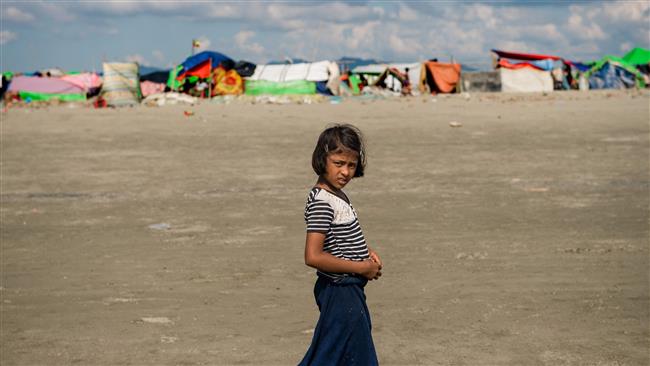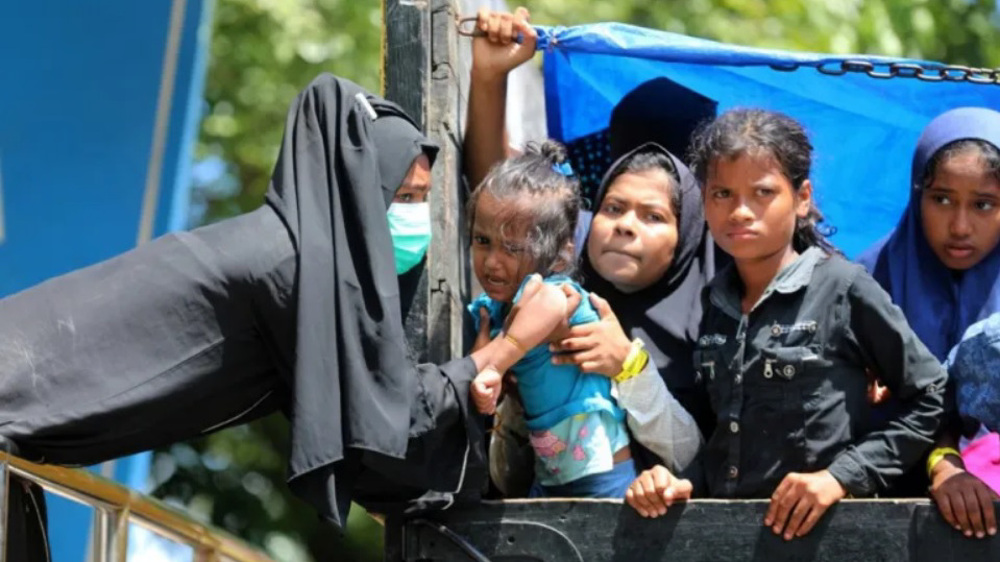Abuse of Rohingya women, girls may be war crime: UN
The United Nations (UN) says widespread atrocities perpetrated by Myanmar’s army against Rohingya Muslim women and girls may constitute war crimes.
Pramila Patten, the UN’s envoy on sexual violence in conflict, said at a news conference in New York on Wednesday that the atrocities had been orchestrated and carried out by Myanmar’s military and might be “war crimes, crimes against humanity and acts of genocide.”
The senior UN official said the widespread use of sexual violence “was clearly a driver and push factor” for hundreds of thousands of Rohingya Muslims to flee Myanmar, adding that the measure was “a calculated tool of terror aimed at the extermination and removal of the Rohingya as a group.”
Patten, who met many Rohingya victims of sexual violence in Bangladesh camps during a visit earlier this month, said she fully endorsed the assessment by UN High Commissioner for Human Rights Zeid Ra’ad al-Hussein that the persecuted Muslim community in Myanmar’s western Rakhine State had fallen victim to “ethnic cleansing.”

The UN envoy said that during her visit to the camps, she had heard “the most heartbreaking, most shocking, and horrific accounts of abuses committed cold bloodedly with unparalleled hatred against the Rohingya community.”
“My observations point to a pattern of widespread atrocities, including sexual violence against Rohingya women and girls who have been systematically targeted on account of their religion and ethnicity,” she said.
Patten also announced that she would participate in a Human Rights Council meeting on violence against Rohingya in Geneva on December 5 and later brief the UN Security Council in New York on the issue.
Earlier this month, Human Rights Watch called on world leaders to consider organizing a set of judicial mechanisms to hold accountable the perpetrators of the abuses in Myanmar via the UN General Assembly and Human Rights Council.
The New York-based rights organization urged world leaders to address the plight of the Muslim minority group and “refer the situation in Burma to The Hague.”
More than 600,000 Rohingya Muslims have so far fled the predominantly-Buddhist Myanmar to neighboring Bangladesh since August 25, when a crackdown on the Muslims intensified in Rakhine. That crackdown had originally begun in late 2016.
During the past three months, the government troops have been raping, killing, making arbitrary arrests, and committing mass arson of houses in hundreds of predominantly-Rohingya villages in the state.

Myanmar’s government has blocked aid agencies from delivering humanitarian aid to desperate civilians at the violence-hit region, where estimates as to how many Muslims have been killed vary from 1,000 to 3,000.
At the root of the crisis is the refusal by Myanmar to grant citizenship to the Muslim minority community. The government says the Rohingyas should go to Bangladesh, while Dhaka says that they are Myanmarese and that it has accepted Rohingya refugees only on humanitarian grounds.
‘How many more have to die?’: Minneapolis mayor demands Trump end ‘invasion’
VIDEO | Criticism grows over Pakistan joining Trump-led 'Board of Peace'
Iraq’s dominant political bloc nominates Nouri al-Maliki for prime minister
Israel moves to restrict Palestinian re-entry to Gaza, ‘encourage outflow’: Report
VIDEO | Iran warns enemies against new 'adventurism'
VIDEO | Venezuelans demand return of their president Nicolás Maduro
Muslims facing ‘major confrontation’ led by US and Israel: Hezbollah chief
Palestine Action activist at risk of death after beginning thirst strike in UK jail










 This makes it easy to access the Press TV website
This makes it easy to access the Press TV website